Abstract
Although many clinical observations suggest that Hope influences the onset, duration, prognosis, and recovery from mental and physical illnesses, a lack of direct scientific proof persists because no method exists for the objective assessment of hope. We have now constructed the Hope Index Scale, a testing instrument for the measurement of this rather elusive human attribute. Upon testing control and experimental subjects, it was found that score distribution on the Hope Index Scale correlates negatively with Beck's Hopelessness Scale (Pearson r = −.88, P <.001) and is independent of age, race, or sex. It is concluded that this tool can help identify individuals with varying degrees of psychosocial problems and that scores of 150 or below are indicative of pathologic hope deficit often associated with suicide.
Full text
PDF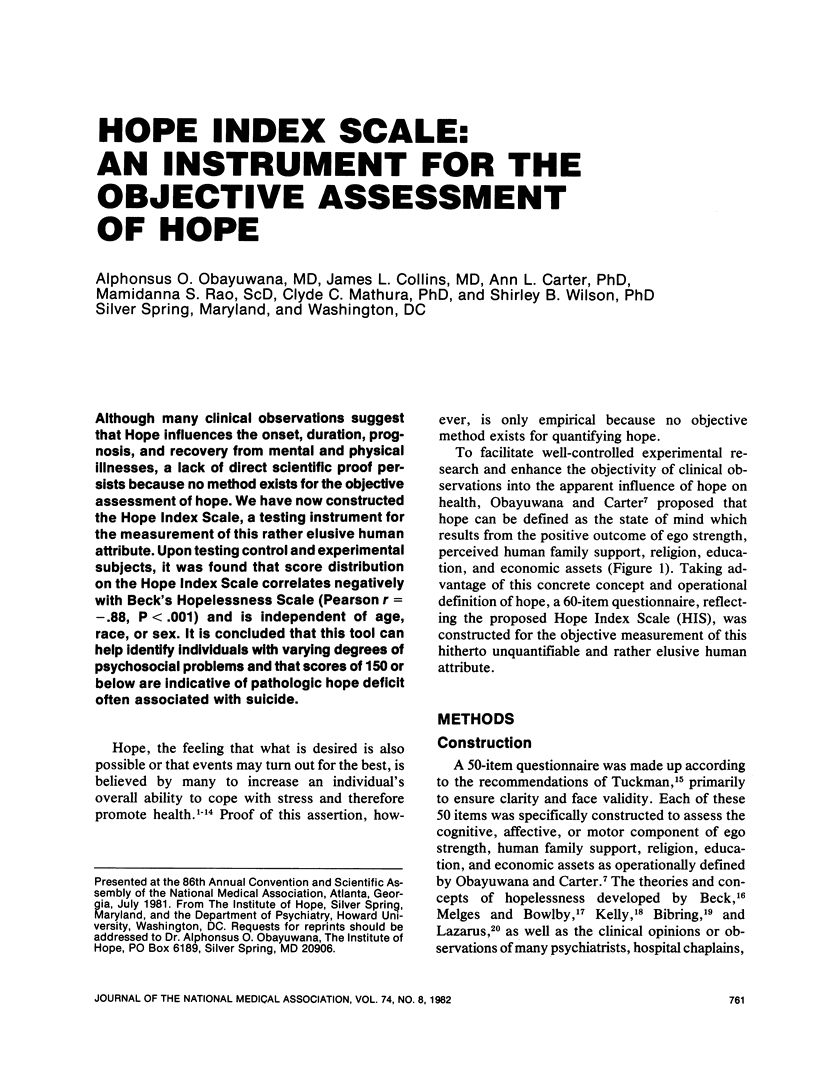
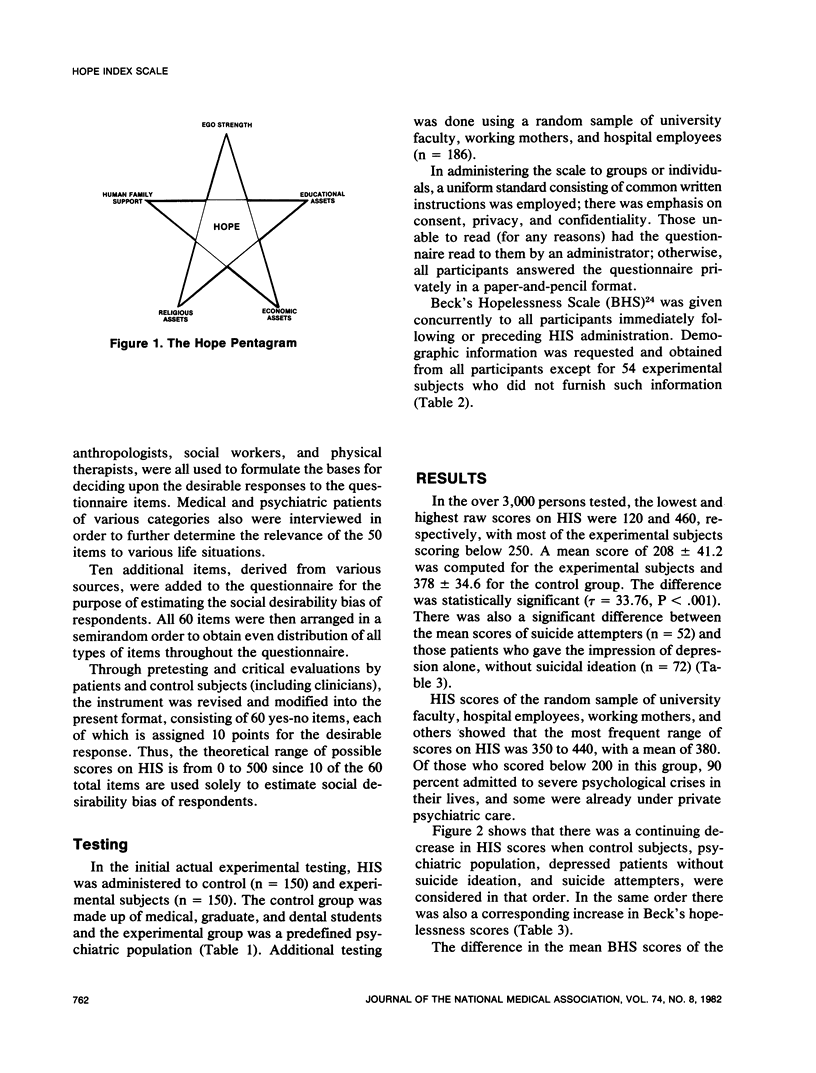
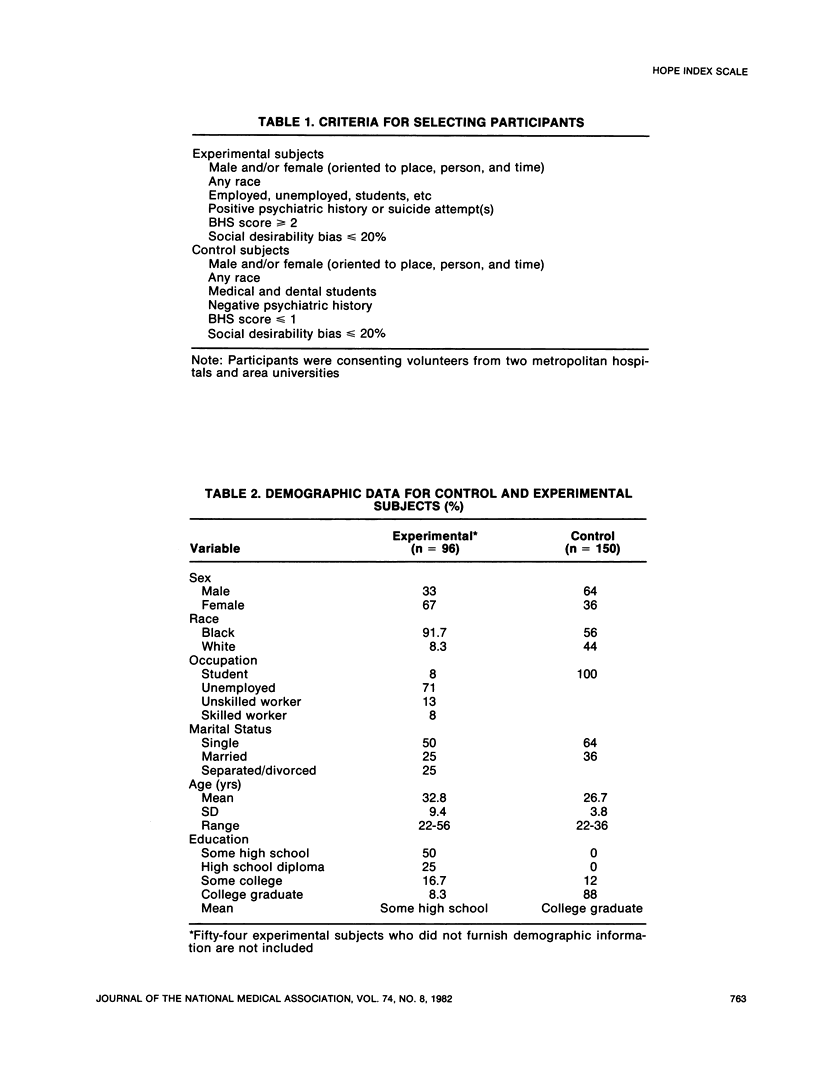
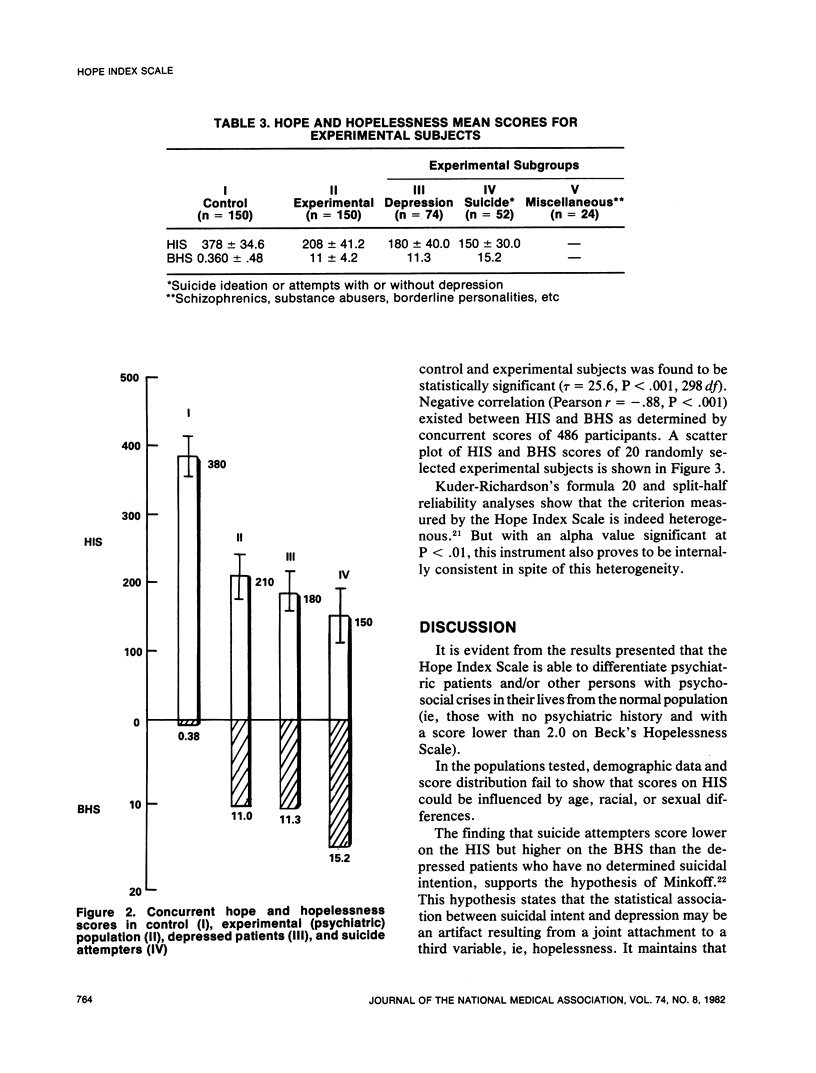
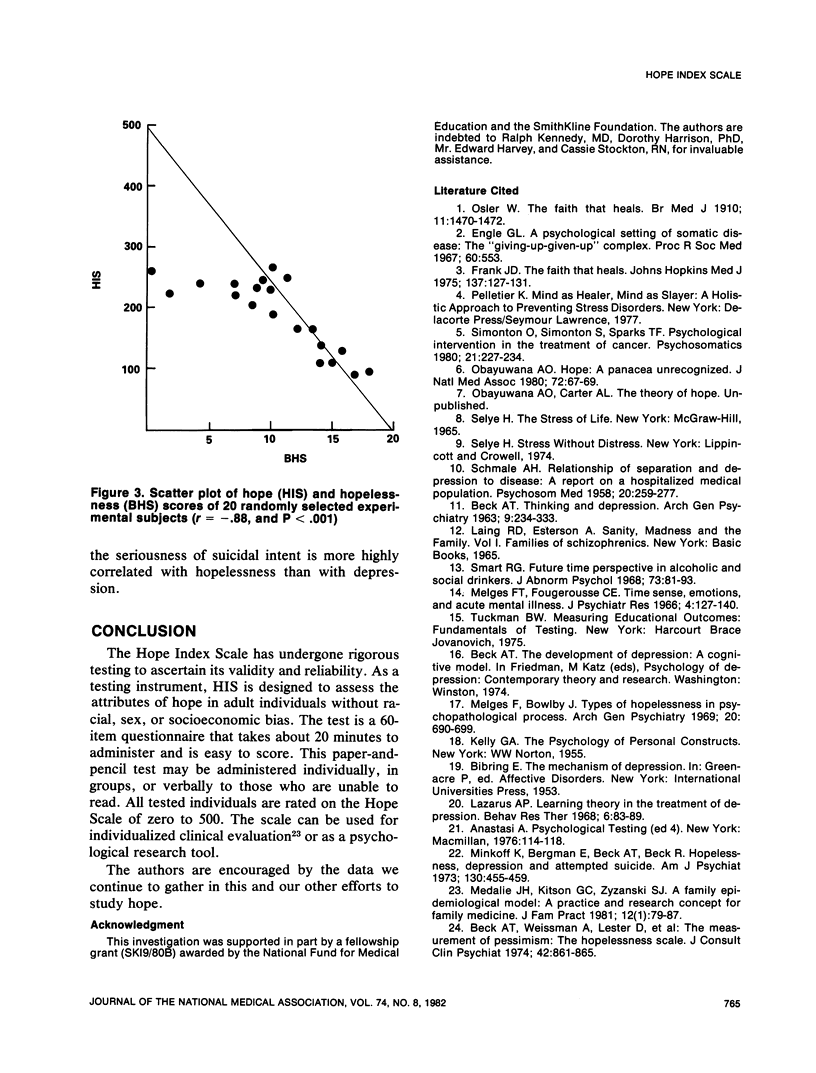
Selected References
These references are in PubMed. This may not be the complete list of references from this article.
- BECK A. T. THINKING AND DEPRESSION. I. IDIOSYNCRATIC CONTENT AND COGNITIVE DISTORTIONS. Arch Gen Psychiatry. 1963 Oct;9:324–333. doi: 10.1001/archpsyc.1963.01720160014002. [DOI] [PubMed] [Google Scholar]
- Beck A. T., Weissman A., Lester D., Trexler L. The measurement of pessimism: the hopelessness scale. J Consult Clin Psychol. 1974 Dec;42(6):861–865. doi: 10.1037/h0037562. [DOI] [PubMed] [Google Scholar]
- Engel G. L. A psychological setting of somatic disease: the `giving up - given up' complex. Proc R Soc Med. 1967 Jun;60(6):553–555. doi: 10.1177/003591576706000618. [DOI] [PMC free article] [PubMed] [Google Scholar]
- Frank J. D. The faith that heals. Johns Hopkins Med J. 1975 Sep;137(3):127–131. [PubMed] [Google Scholar]
- Lazarus A. A. Learning theory and the treatment of depression. Behav Res Ther. 1968 Feb;6(1):83–89. doi: 10.1016/0005-7967(68)90045-4. [DOI] [PubMed] [Google Scholar]
- Medalie J. H., Kitson G. C., Zyzanski S. J. A family epidemiological model: a practice and research concept for family medicine. J Fam Pract. 1981 Jan;12(1):79–87. [PubMed] [Google Scholar]
- Melges F. T., Bowlby J. Types of hopelessness in psychopathological process. Arch Gen Psychiatry. 1969 Jun;20(6):690–699. doi: 10.1001/archpsyc.1969.01740180074007. [DOI] [PubMed] [Google Scholar]
- Minkoff K., Bergman E., Beck A. T., Beck R. Hopelessness, depression, and attempted suicide. Am J Psychiatry. 1973 Apr;130(4):455–459. doi: 10.1176/ajp.130.4.455. [DOI] [PubMed] [Google Scholar]
- Obayuwana A. O. Hope: a panacea unrecognized. J Natl Med Assoc. 1980 Jan;72(1):67–69. [PMC free article] [PubMed] [Google Scholar]
- Osler W. THE FAITH THAT HEALS. Br Med J. 1910 Jun 18;1(2581):1470–1472. doi: 10.1136/bmj.1.2581.1470. [DOI] [PMC free article] [PubMed] [Google Scholar]
- SCHMALE A. H., Jr Relationship of separation and depression to disease. I. A report on a hospitalized medical population. Psychosom Med. 1958 Jul-Aug;20(4):259–277. doi: 10.1097/00006842-195807000-00001. [DOI] [PubMed] [Google Scholar]
- Simonton O. C., Matthews-Simonton S., Sparks T. F. Psychological intervention in the treatment of cancer. Psychosomatics. 1980 Mar;21(3):226-7, 231-3. doi: 10.1016/s0033-3182(80)73697-6. [DOI] [PubMed] [Google Scholar]
- Smart R. G. Future time perspectives in alcoholics and social drinkers. J Abnorm Psychol. 1968 Feb;73(1):81–83. doi: 10.1037/h0025449. [DOI] [PubMed] [Google Scholar]



